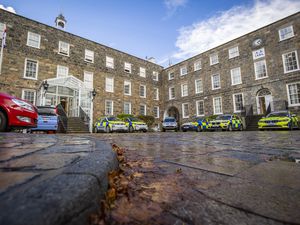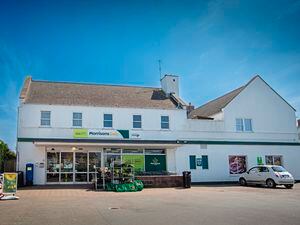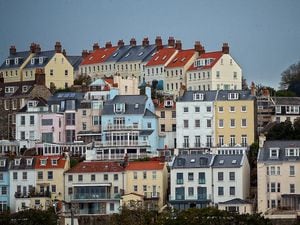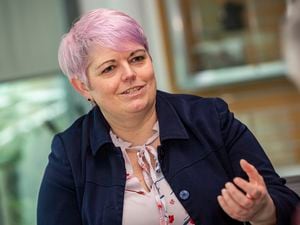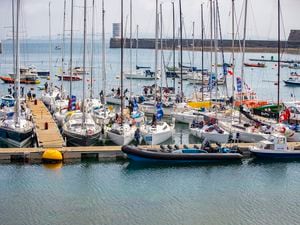We can all help prevent birds ingesting plastic, says expert
SEABIRDS are threatened by marine plastic in the Channel Islands and the problem is ‘significantly detrimental’, according to Alderney Wildlife Trust manager Roland Gauvain.
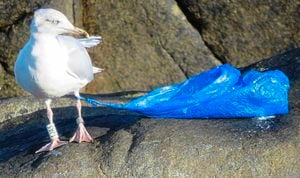
‘The important thing about plastic, worse than it ending up in the nests, is birds ingesting it,’ said Mr Gauvain. ‘This affects a high proportion of all seabirds.’
The plastic involved is not limited to fishing equipment and islanders can help.
He suggested better management of plastic bags in shops is needed, as well as continuing with beach cleans.
Last year, Alderney held 30 cleaning events and last month the Big Channel Island Beach Clean took place across all the islands.
Regular beach cleaners in Guernsey are helping to get plastic waste off island beaches, but they often see birds struggling.
Beachcomber Georgie King, 28, said she had seen seagulls try to fly with plastic bags stuck to their feet at Chouet.
Another beach volunteer, Barbara Crowson, 53, said while on the Castle Cornet walkway she had seen a gull drown in the water with its head stuck in a plastic carry handle for water bottles. ‘We have also seen a gull with a hook and fishing nylon hanging from its beak,’ she said.
Some of the waste causing issues comes from further afield than the Channel Islands.
Environment Guernsey manager Jamie Hooper said he had found numerous balloons washed up from the UK and France. One UK franchise even thought the washed up balloons was great publicity when Mr Hooper informed them of the issue.
‘They were completely ignorant of the environmental consequences,’ he said.
GSPCA manager Steve Byrne said in the last year the shelter had seen up to a dozen cases of birds that had been visibly harmed by ocean waste. ‘Of the plastics we can identify causing harm to wild birds that come through our care it is fishing nets and hooks that visually can be easily identified, but many birds come through our care and we may be unaware if they have ingested plastic waste either directly or through the food chain.’
La Societe Guernesiaise ornithology section secretary Chris Mourant, who helped the GSPCA recently with a gull that had a fishing line and hook stuck in its gullet, said there were no real figures for what plastic is doing to seabirds in the Bailiwick. He would like to see more done to understand how sea life is affected by plastic.
‘Unless we start doing some research on seabirds, we can’t know for sure. I ask people to let me know when they see dead birds so that I can do a biopsy,’ he said.
Mr Mourant said this should be done for other sea life around the islands, such as porpoises and dolphins.
Mr Gauvain said plastic in the ocean is a global problem and governments must be challenged.
‘The Channel Islands should be ahead of the game,’ Mr Gauvain said of single-use plastic.
The situation is not completely lost and there are ways for islanders to help.
The AWT has started a petition to put pressure on the States of Alderney to legislate for a ban on single-use plastic.
Beachcomber Sam Reoch, 46, said she felt that, excluding when storms occur and bring waste up from the seabed, she had seen a decrease in plastic on the beaches. ‘We are making a difference because so many people clean beaches now,’ she said.

